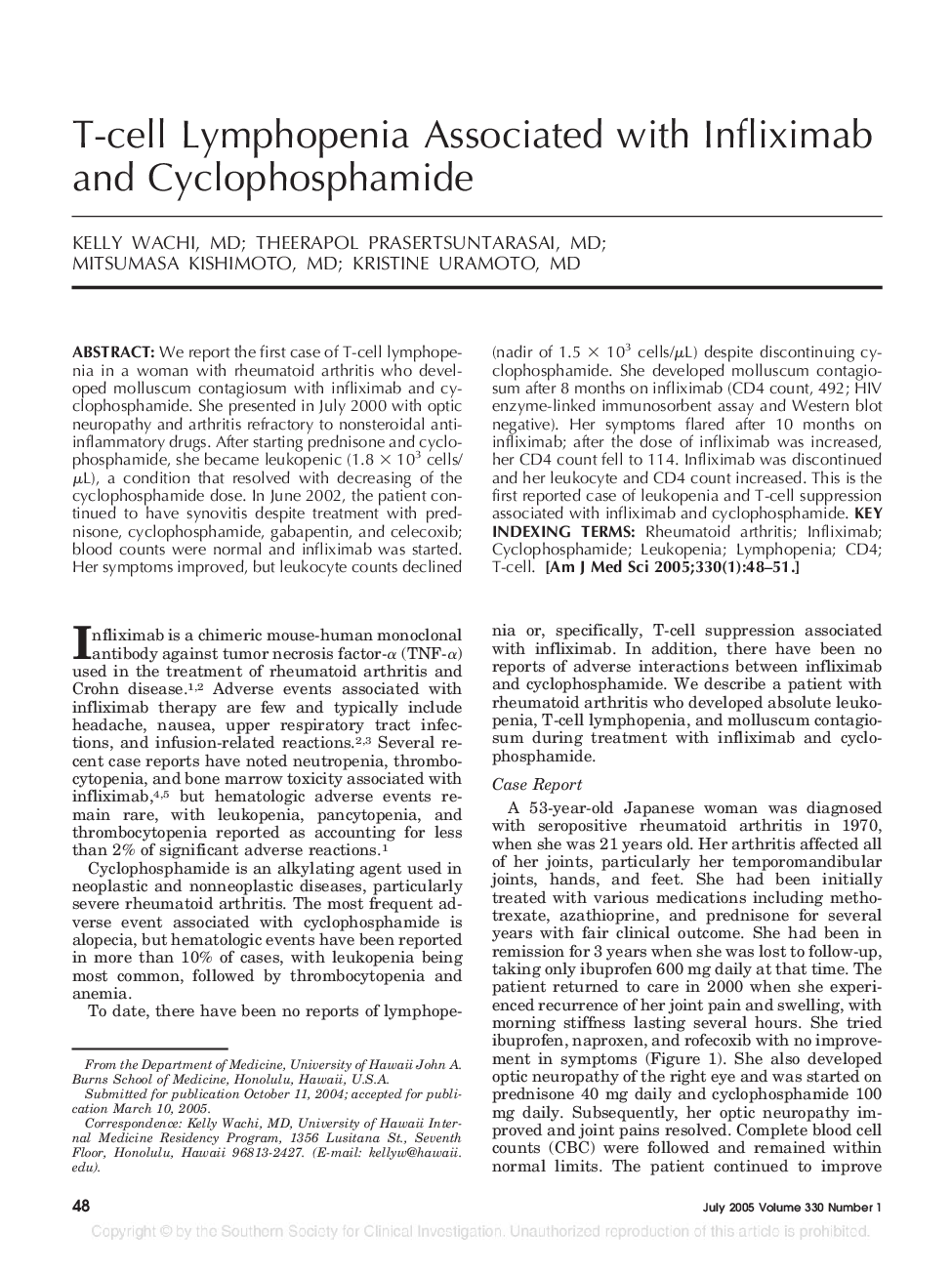| Article ID | Journal | Published Year | Pages | File Type |
|---|---|---|---|---|
| 9942482 | The American Journal of the Medical Sciences | 2005 | 4 Pages |
Abstract
We report the first case of T-cell lymphopenia in a woman with rheumatoid arthritis who developed molluscum contagiosum with infliximab and cyclophosphamide. She presented in July 2000 with optic neuropathy and arthritis refractory to nonsteroidal antiinflammatory drugs. After starting prednisone and cyclophosphamide, she became leukopenic (1.8 Ã 103 cells/ μL), a condition that resolved with decreasing of the cyclophosphamide dose. In June 2002, the patient continued to have synovitis despite treatment with prednisone, cyclophosphamide, gabapentin, and celecoxib; blood counts were normal and infliximab was started. Her symptoms improved, but leukocyte counts declined (nadir of 1.5 Ã 103 cells/μL) despite discontinuing cyclophosphamide. She developed molluscum contagiosum after 8 months on infliximab (CD4 count, 492; HIV enzyme-linked immunosorbent assay and Western blot negative). Her symptoms flared after 10 months on infliximab; after the dose of infliximab was increased, her CD4 count fell to 114. Infliximab was discontinued and her leukocyte and CD4 count increased. This is the first reported case of leukopenia and T-cell suppression associated with infliximab and cyclophosphamide.
Related Topics
Health Sciences
Medicine and Dentistry
Cardiology and Cardiovascular Medicine
Authors
Kelly MD, Theerapol MD, Mitsumasa MD, Kristine MD,
